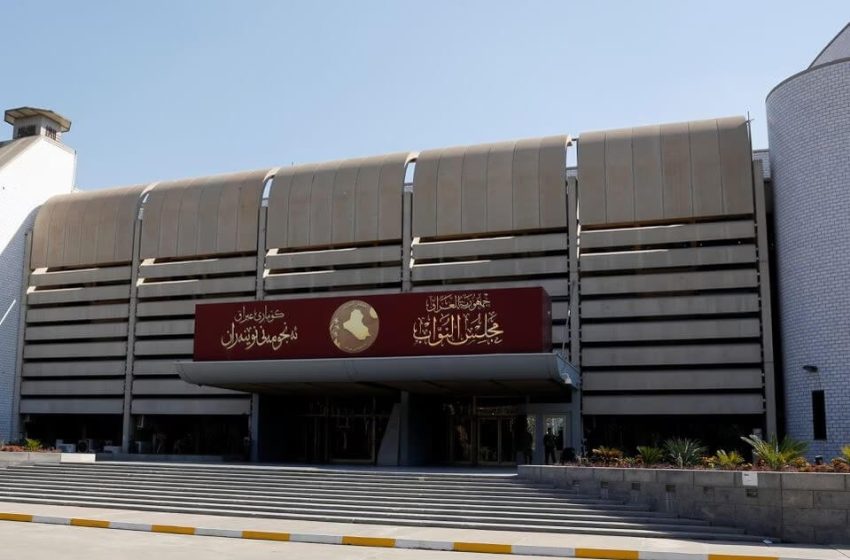Iraqi Parliament to vote on general budget next Thursday

The Iraqi parliament in Baghdad. Photo: Reuters
Baghdad (IraqiNews.com) – The Iraqi Parliament decided to vote on the general budget during its session scheduled for next Thursday, according to the Iraqi News Agency (INA).
The statement elaborated that the Parliament’s session scheduled for next Thursday will include voting on the draft federal budget law for the fiscal years 2023, 2024 and 2025.
Last April, the Finance Committee in the Iraqi parliament, headed by First Deputy Speaker of Parliament Mohsen Al-Mandalawi, began discussing the draft federal budget law for the fiscal years 2023, 2024 and 2025.
The Iraqi government announced on March 16 that it had handed over the draft financial budget law for a period of three years to the Iraqi Parliament.
During its session on March 13, the Iraqi government approved the draft federal budget law for the fiscal years 2023, 2024 and 2025, and referred it to the parliament.
Following the cabinet’s session on March 13, the Iraqi Prime Minister, Mohammed Shia Al-Sudani, stressed that the government is keen to ensure that the federal budget reflects the government’s program that the Iraqi Parliament voted on.
According to the draft sent to parliament, the new budget is 197.8 trillion dinars (152 billion USD), including investments worth 47.5 trillion dinars (36.5 billion USD).
The proposed deficit in the new budget is 63.7 trillion dinars (around 48 billion USD).
The budget allocated about 307 million USD for the autonomous Kurdistan region of Iraq in order to pay the salaries of its employees in exchange for 400 thousand barrels of oil per day produced in the region.
The Prime Minister’s Advisor for Financial Affairs, Mazhar Salih, mentioned that the draft federal budget represents the government program that was approved by the parliament last October.
Salih added that the budget aims to achieve two major goals. The first is related to increasing social spending and addressing poverty problems, and the second is to increase investment allocations.
